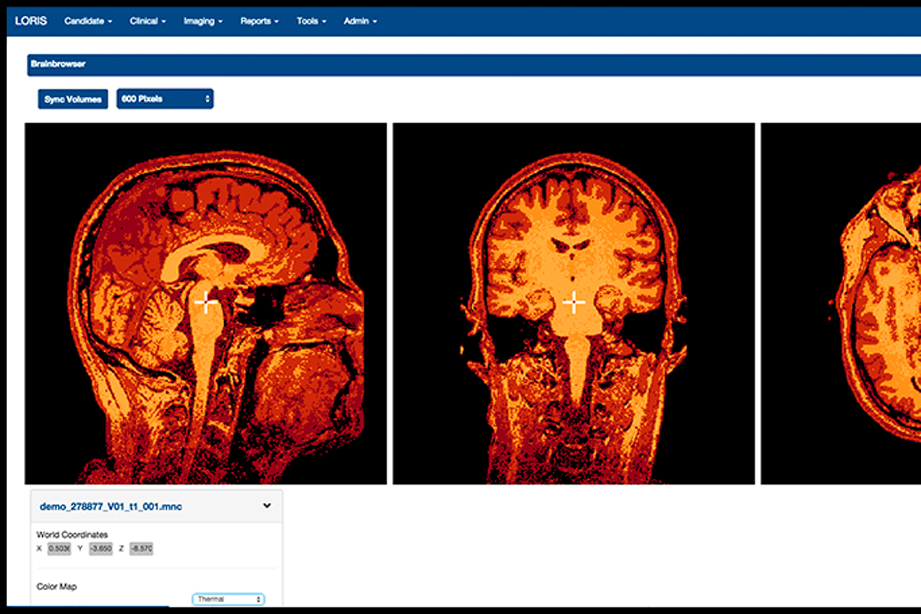The Neuroinformatics Core
Project Category: Projects – Cycle I
July 21, 2015

Challenge
Neuroscience is a broad field with a vast array of research and findings. The research often interconnects in various ways and allows scientists to extrapolate data that is useful for future projects. The problem, however, was to create a database where this information could be shared, accessed and used in meaningful ways.
Project Summary
The Neuroinformatics Core is the team that provided the information-technology systems that made sharing on such a large scale possible. For example, the Canadian Cerebral Palsy Registry, a database that has shone a light on the prevalence and risk factors of CP. Once limited to Quebec, it has since expanded into five other provinces thanks to the implementation of REDCap (Research Electronic Data Capture), a web-based data collection system.
The team also made it possible to mine useful knowledge out of mountains of genetic, brain-imaging and clinical data. For instance, they adapted LORIS (the Longitudinal Online Research and Imaging System) to manage brain scans from across the ASD, FASD and CP projects undertaken by KBHN. Let’s say that an FASD researcher had tested the language and memory skills of children who’d been exposed to alcohol before birth. She could use LORIS to pull up the brain images of the kids whose test results had been abnormal.
The Neuroinformatics Core also developed a platform called Neurocarta, now known as Phenocarta. This platform helped tap into the wealth of information about genes and phenotypes from within and beyond KBHN. Phenocarta brings together data from across multiple resources; it’s a one-stop-shop for anyone looking to zero in on candidate genes for a disorder of interest. The scholars behind the Gene Wiki project have used it to improve the quality of information about genes and diseases on Wikipedia.
Result
Getting hundreds of researchers, partners and trainees in locations all across Canada to collaborate is no small feat. Part of what makes KBHN a true network—rather than just a disconnected group of people with complementary interests—is its ability to share data, results, methods, tools and ideas. By organizing and engaging computational neuroscientists throughout the country, the core raised the profile of Canadian neuroinformatics. This process ultimately resulted in Canada becoming a member of the International Neuroinformatics Coordinating Facility, which helps to establish best practices and build capacity worldwide.
Team
Investigators
Project leads
Paul Pavlidis, University of British Columbia
Alan Evans, McGill University
Wyeth Wasserman, University of British Columbia
Investigators and personnel
Elodie Portales-Casamar, University of British Columbia
Nicolas St-Georges, University of British Columbia
Hugh Brown, University of British Columbia
Frances Lui, University of British Columbia
Dave Macfarlane, McGill University
Christine Rogers, McGill University
Partners
Women and Children’s Health Research Institute
Maternal Infant Child and Youth Research Network
International Neuroinformatics Coordinating Facility
Ontario Brain Institute
Maelstrom Research
BC SUPPORT Unit